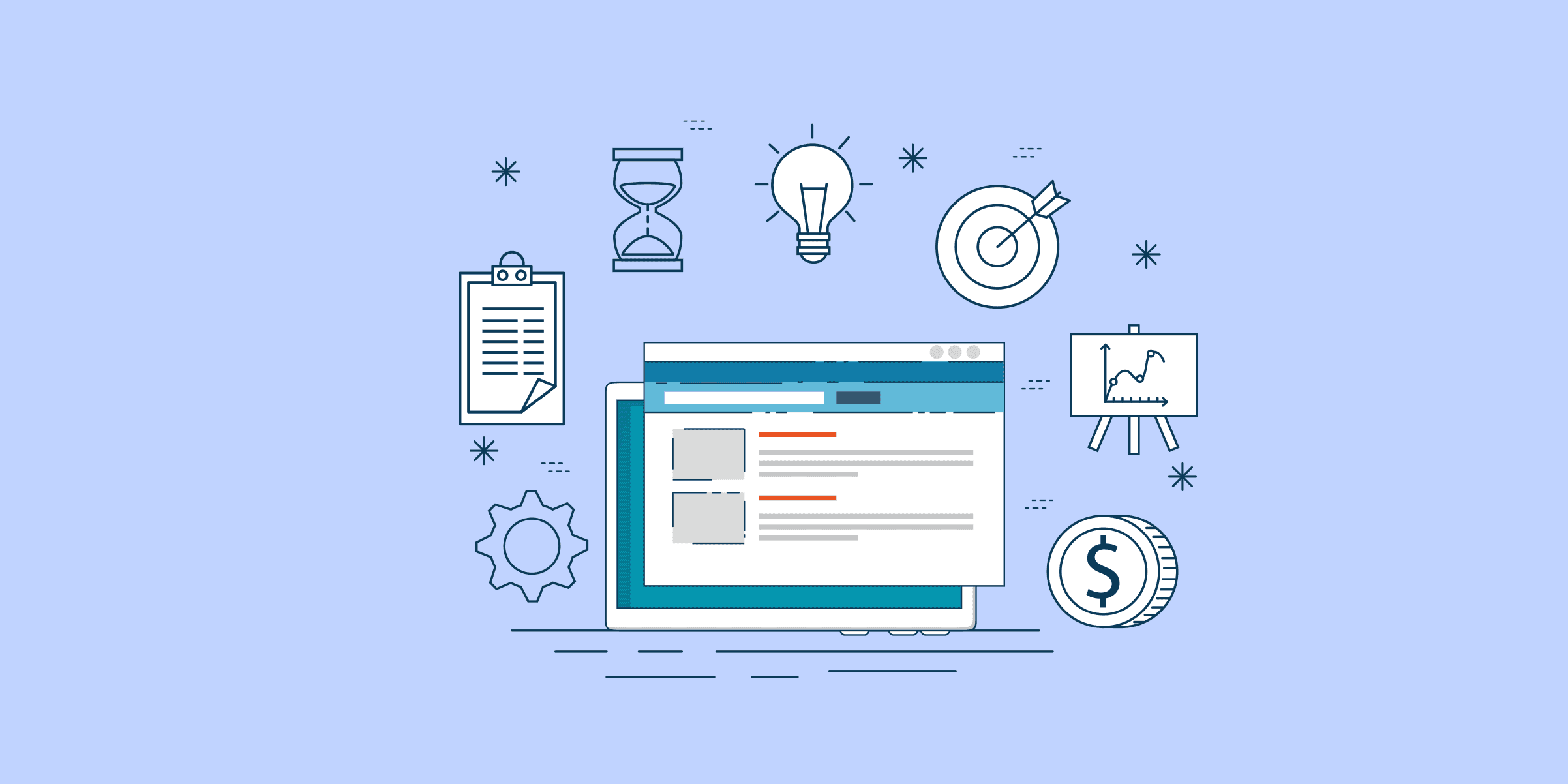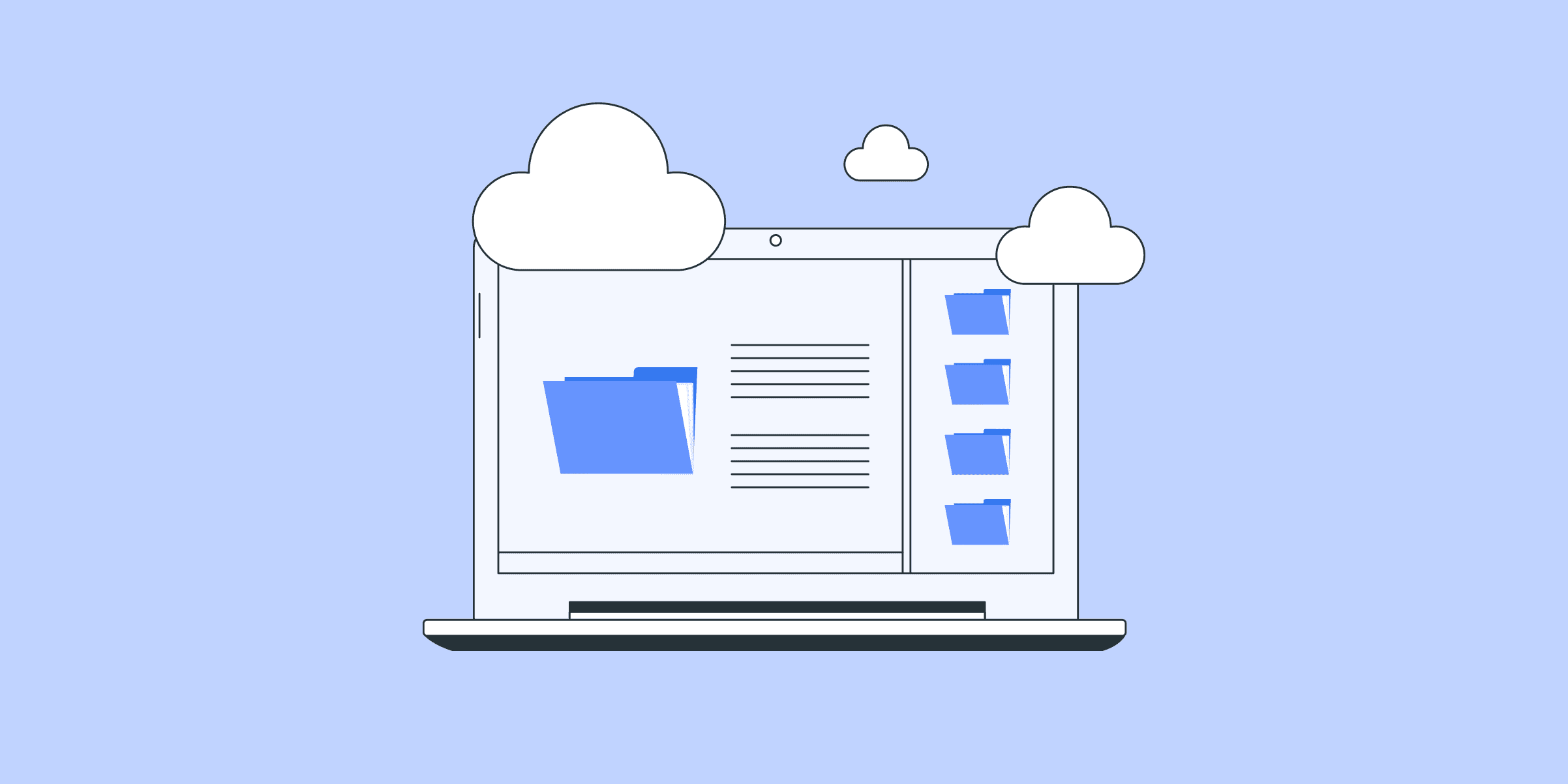
Practical Uses of Proxy IPs: A Powerful Tool for Online Security and Privacy Protection
With the widespread adoption of the internet, online security and privacy protection have become increasingly important. In this data-driven era, proxy IPs have become an indispensable tool for many. So, what are the practical uses of proxy IPs? This article will provide you with a detailed introduction.1. Hiding Real IP Addresses to Protect PrivacyOne of the most common uses of proxy IPs is to hide the user's real IP address. This can prevent hackers and malicious software from tracking your real location, thus protecting your personal privacy. By using a proxy IP, your network requests are first routed through a proxy server before being forwarded to the target website. As a result, the target website can only see the IP address of the proxy server, not your real IP.2. Accessing Region-Restricted ContentDue to regional restrictions, certain websites or services are only available to users in specific countries or regions. Proxy IPs can help users bypass these restrictions and access blocked content. For example, by using a proxy IP located in the United States, a user in China can access streaming services that are only available to American users.3. Enhancing Network SecurityProxy IPs not only hide your real IP address but can also act as a firewall and filter to block malicious traffic from entering your network. Some advanced proxy servers offer additional security features, such as data encryption and virus scanning, further enhancing network security.4. Improving Browsing SpeedSome proxy servers cache common web resources, allowing you to retrieve data directly from the proxy server when revisiting these web pages, rather than reloading all the content, thereby improving browsing speed. Additionally, using a proxy IP located geographically closer to the target website can reduce data transmission delays, further speeding up web page loading times.5. Web Scraping and Data CollectionIn the field of web scraping and data collection, proxy IPs are an indispensable tool. Scrapers need to constantly send requests to different websites, and using the same IP address may result in being blocked by those websites. Proxy IPs can simulate requests coming from different users, preventing IP bans and increasing data collection efficiency.6. Testing and TroubleshootingFor developers and testers, proxy IPs are a powerful tool. When testing websites or applications, using proxy IPs can simulate user access from different regions, helping to identify and resolve potential issues. Additionally, proxy IPs can be used to bypass network restrictions at companies or schools, facilitating debugging and troubleshooting for developers.7. Competitive IntelligenceIn the business realm, companies can use proxy IPs to gather competitive intelligence. For instance, monitoring competitors' price changes and market activities. By using proxy IPs from different regions, more comprehensive and accurate information can be obtained, aiding in the formulation of more effective business strategies.ConclusionThe uses of proxy IPs are varied and extensive, from protecting privacy to enhancing network security, from speeding up browsing to data collection. They play a crucial role in many fields. As the online environment becomes increasingly complex, the application prospects of proxy IPs will continue to expand. Therefore, understanding and making good use of proxy IPs can allow us to enjoy the internet more safely and efficiently.

PremiumISP: Unveiling the Ultimate Internet Service Provider
"PremiumISP: Unveiling the Ultimate Internet Service Provider"Description: In this blog post, we will delve into the world of premiumISP, an Internet Service Provider (ISP) that promises to revolutionize the way we experience the internet. We will explore the unique features and benefits offered by premiumISP, shedding light on why it has become the go-to choice for internet enthusiasts looking for a superior online experience.Introduction:In today's interconnected world, a reliable and high-speed internet connection has become a necessity. Whether it is for work, education, entertainment, or communication, our reliance on the internet continues to grow exponentially. Recognizing this growing demand, premiumISP has emerged as a game-changer in the ISP industry, providing top-notch services to meet the connectivity needs of users worldwide.Unparalleled Speed and Bandwidth:When it comes to internet service, speed is everything. premiumISP takes pride in offering unrivaled internet speed, allowing users to accomplish tasks faster and experience seamless browsing, streaming, and downloading. Whether it is streaming 4K videos, playing online games, or handling bandwidth-intensive tasks, premiumISP ensures that customers never face the frustration of slow internet speeds.Cutting-Edge Technology:premiumISP utilizes the latest technological advancements to deliver an exceptional internet experience. With fiber-optic cables, state-of-the-art routers, and advanced networking infrastructure, they ensure that customers receive a reliable and uninterrupted connection. This commitment to technology ensures that users can enjoy a stable internet connection even during peak usage hours.Enhanced Security and Privacy:In an era where online threats are constantly evolving, premiumISP goes above and beyond to prioritize the security and privacy of its users. With robust firewalls, advanced encryption protocols, and real-time threat monitoring, premiumISP safeguards its customers' sensitive data from potential cyber attacks. Additionally, premiumISP respects user privacy by implementing strict data protection policies, ensuring that users have control over their personal information.Uninterrupted Connectivity:One of the most frustrating experiences for users is frequent internet outages. premiumISP strives to eliminate this issue by providing a highly reliable network infrastructure. Their redundant systems and backup generators ensure that even during power outages or natural disasters, users can stay connected without interruption. This unparalleled continuity offers peace of mind to customers who rely heavily on the internet for their daily activities.Customized Packages and Excellent Customer Service:premiumISP understands that every user has different needs and preferences. Hence, they provide a range of customizable packages tailored to fit specific requirements. Whether it is high-speed internet for gaming enthusiasts, affordable plans for students, or comprehensive packages for businesses, premiumISP has got it covered. Moreover, their dedicated customer support team is available around the clock to assist users with any issues or queries, ensuring a smooth and satisfactory experience.Conclusion:In a world where internet connectivity has become indispensable, premiumISP stands out as a provider committed to delivering an unparalleled internet experience. Their focus on speed, cutting-edge technology, security, uninterrupted connectivity, customization, and outstanding customer service makes them the ultimate choice for users seeking the best internet service. With premiumISP, users can unlock the true potential of the internet and stay connected with confidence.

Preventing Domain Squatting Through Intelligent Proxy Solutions with LIKE.TG
Domain squatting, also known as cybersquatting, is a persistent challenge faced by businesses and brand owners. LIKE.TG, with its sophisticated proxy solutions, has risen as a crucial ally in combating this issue. Here's a closer look: Understanding Domain SquattingDomain squatting, or cybersquatting, involves registering domains that closely resemble recognized brands or personal names. The intention behind this practice can range from attempting to mislead consumers, diverting traffic to a competitor, or exploiting a brand's goodwill for financial gain. This malicious tactic can tarnish a brand’s reputation and lead to loss of revenue. Protecting Your Trademark’s Reputation with LIKE.TGLIKE.TG specializes in providing advanced proxy solutions to help businesses safeguard their trademarks. The main strategy to achieve this involves: 1. Utilizing LIKE.TG's Proxy Solutions: LIKE.TG's vast pool of Static Residential ISP Proxies allows businesses to effectively monitor and respond to potential squatting activities. With these proxies, companies can track fraudulent websites, ensuring immediate action and preventing customers from falling victim to cybercriminals. 2. Partnership with LIKE.TG: By collaborating with LIKE.TG, brands can further enhance their protection against domain squatting. This partnership leverages LIKE.TG's experience and technology in the proxy service domain, offering continuous surveillance and an efficient response to any emerging threats. Steps to Reclaim a Squatted DomainIf faced with domain squatting, LIKE.TG advises the following actions: 1. NegotiationAttempt to negotiate with the squatter directly. A resolution can sometimes be reached amicably without the need for legal action. Employing a mediator with experience in these matters can often lead to a favorable resolution. 2. Legal ChannelsIf negotiation fails, consider filing a complaint with the World Intellectual Property Organization (WIPO) or pursuing legal action in a court of law. Legal channels provide formal avenues for resolution but can be time-consuming and costly. 3. Contact the RegistrarSeek the assistance of the company that manages the domain name registration. They may have policies in place to deal with squatting and can sometimes assist in resolving the issue. 4. Utilize LIKE.TG's Proxy ToolsLIKE.TG's vast proxy pool and intelligent solutions allow you to bypass CAPTCHA interference, bans, or blocks. This functionality ensures smooth and uninterrupted monitoring, aiding in the rapid detection of squatting activities. Proactive Measures Against Domain SquattingTo avoid falling victim to domain squatting, consider these preventive strategies: 1. Register EarlySecure your domain name as soon as your brand is established. Early registration prevents others from acquiring your desired domain and minimizes potential squatting risks. 2. Acquire Similar NamesInvest in domains with different extensions and common misspellings of your brand. This strategy creates a defensive buffer against potential squatters. 3. Domain Ownership ProtectionEmploy services that enhance and secure your domain registration. These services may include privacy protections and additional security measures to keep your domain safe. 4. Register a TrademarkStrengthen your legal standing by registering your domain as a trademark. This provides additional legal protection and makes legal actions against squatters more robust. 5. Collaborate with LIKE.TGPartnering with LIKE.TG allows you to leverage their proxy solutions for continuous vigilance against squatting activities. Their advanced tools and expertise ensure that your brand is protected from potential threats. ConclusionDomain squatting represents both a significant and severe threat in today's digital landscape, challenging brand integrity and consumer trust. LIKE.TG's cutting-edge proxy solutions offer businesses an efficient, robust, and comprehensive means to counter this threat. With an emphasis on proactive measures such as real-time tracking and monitoring, legal compliance, and a suite of preventive strategies, LIKE.TG positions itself as an indispensable ally and partner in maintaining a secure and authentic digital presence. By choosing LIKE.TG's solutions, brands can equip themselves with the tools necessary to protect their trademarks, reclaim squatted domains, and take active steps against domain squatting, ensuring continued trust and security for their consumers.

Price Discrimination and Consumer Power in E-Commerce
Introduction The rise of e-commerce has given retailers unprecedented ability to customize pricing and employ strategies like dynamic pricing and personalized price discrimination. Charging different consumers different prices for the same items based on their willingness to pay has become technologically feasible. However, these practices also raise concerns about fairness, transparency, and their implications for consumer welfare and power. This article provides an overview of the phenomenon of online price discrimination, examining relevant concepts, empirical evidence, consumer attitudes, and its relationship to buyer power. The ability to track, profile, and recognize customers online appears to be strengthening retailers' hands, but buyer resistance poses important constraints. What is Price Discrimination? Price discrimination refers to the practice of charging different prices to different consumers for the same product or service. It aims to capture more consumer surplus by tailoring prices more closely to what each consumer is willing to pay. Economist Pigou identified three degrees of price discrimination: First Degree Price Discrimination: This involves charging each individual consumer exactly their maximum willingness to pay. It represents "perfect" price discrimination, where the seller extracts all consumer surplus. However, sellers rarely have sufficient information to implement true first degree discrimination. Second Degree Price Discrimination: Here, the seller offers a menu of pricing schemes (such as quantity discounts) and lets consumers self-select into them based on their preferences. This is a form of voluntary price discrimination. Examples include volume discounts, versioning of products, and loyalty programs. Third Degree Price Discrimination: In this case, the seller separates consumers into distinct groups based on characteristics like demographics, location, purchase history etc. The seller then charges different prices to each group, but a uniform price within the group. Versioning products across groups is another form of third degree discrimination. Online retailers possess sophisticated tracking and personalization technologies that allow them to identify and categorize consumers into very fine-grained segments. Factors like IP address, browser settings, account status and past purchases can be used to sort users. This enhances sellers' capability to implement third degree price discrimination or more advanced personalized pricing online. However, first degree "perfect" discrimination remains an ideal due to limits in consumer data. Consumer Attitudes and Price Sensitivity Surveys consistently show that most consumers view personalized or targeted pricing as unethical, unfair, and unacceptable. There are several key factors driving this negative attitude: - Lack of Transparency - Consumers dislike not knowing what price category they fall into or why they are being charged a particular price. The opaque nature of personalized pricing results in information asymmetry and perceptions of unfairness. - Privacy Concerns - Price discrimination requires collection of extensive personal data and online tracking to categorize consumers. Many find this invasion of privacy creepy and manipulative. - Violates Norms - Singling out groups or individuals for higher prices is seen as violating norms of impartial treatment. People expect uniform pricing as the default. - Distrust - Customized prices arouse suspicions that the seller is trying to take advantage of the consumer's limited information. This reduces trust in the seller. However, other factors can sometimes outweigh these concerns for certain segments: - Loyalty - Some consumers are willing to pay premium prices to trusted brands they have affinity with. - Convenience - Services like fast shipping and recommendations create value that justifies higher prices for some. - Lack of Alternatives - In certain markets with few options, consumers may accept personalized pricing due to no other choice. - Benefits - Some consumers focus on personalized discounts they receive rather than implications for others. These factors allow some tolerance for price discrimination practices, especially if implemented quietly without transparency. Price Knowledge: An important factor influencing price sensitivity is whether the consumer is aware of discrimination or not. Those aware of being targeted for higher prices react much more negatively. Sellers sometimes try to obfuscate discrimination to avoid backlash. Location and Income Level: Location-based price differences are common, with buyers in wealthier regions generally seeing higher prices. However, income level within a location has complex effects. Higher income alone does not necessarily predict lower price sensitivity. Segmenting buyers: Due to variations in attitudes, different buyer segments emerge - e.g. those who resist any discrimination, those open to it under certain conditions, and those who remain loyal regardless of pricing. Sellers try to identify and target these segments for effective discrimination strategy. But increased transparency could shift more consumers into discriminating-aware segments. Conclusion In closing, the advent of e-commerce is expanding both the technological capabilities for and the prevalence of personalized price discrimination. Though still limited to an extent, discrimination based on factors like location, account status, and browsing history appears to be growing on major retail sites. Consumer dislike of opaque and targeted pricing presents an obstacle, but segments amenable to differential pricing under certain conditions exist. The relationship between consumer and corporate power is fluid and evolving in this relatively new landscape. More transparency mandated by regulations like GDPR could reshape it further. While personalized pricing aims to increase seller surplus by capturing consumer surplus, buyers retain some countervailing power through resistance and sanctioning of discriminating retailers. The balance of power remains in flux as companies, consumers, and regulators feel their way forward in the digital retail revolution.

Privacy Regulations and their Role in Internet Marketing
Introduction In the age of the Internet, where every action has a digital footprint, the conversation surrounding data privacy is more crucial than ever. Personal information is the lifeblood of many digital businesses, a cornerstone on which customized experiences are built. But, as data becomes increasingly accessible, questions arise: How is our personal information protected? What responsibilities do businesses and individuals have in ensuring this protection? This article delves deep into the value of personal information, guiding principles for its provision, the historical regulatory measures, the private sector's pivotal role, and the innovative technologies that champion our privacy. The Value of Personal Information In our digital age, a mere click can provide a wealth of information. Each interaction, be it an ad click, an online purchase, or a cursory glance at a webpage, adds to an intricate tapestry of digital footprints. For businesses, this tapestry is a treasure trove, providing rich insights into consumer behavior, preferences, and trends. This enables them to not only improve their product offerings but also craft personalized user experiences tailored to individual needs. But, as the saying goes, with great power comes great responsibility. Businesses find themselves as the custodians of a vast expanse of personal information. It isn't merely about storing this data securely – although that's a significant part of it. It's about ensuring that this data is used ethically and responsibly. Every piece of data that businesses access and use should align with the expectations set with the individual. Whether it's their browsing habits, purchase history, or even personal demographics, individuals trust companies with their information, expecting them to honor that trust. It's a delicate balance: leveraging data for business advantage while ensuring that the individual's understanding of data use isn't violated. In essence, it's a covenant of transparency and trust between businesses and their consumers. Guiding Principles for Individuals Providing Personal Information The digital landscape isn't solely the domain of businesses. Individuals, as both creators and consumers of content, are integral to the online world's fabric. Their interactions, contributions, and presence shape the Internet's very nature. But as they navigate this vast digital expanse, there are guiding principles they should be armed with. Communication stands at the forefront. In an age where data breaches and misuse are, unfortunately, all too common, understanding is paramount. Before sharing any piece of personal information, individuals should be clear on its purpose. Why is it being collected? How will it be used? What measures are in place to protect it? These aren't just cursory questions; they form the foundation of informed consent. But the individual's role doesn't end at providing information. It's an ongoing relationship, one that demands proactive engagement. Individuals should be empowered with tools and mechanisms to monitor and control their data. This means having avenues to correct any inaccuracies, to seek remedies if there's any mishandling, and to enforce protective measures like encryption. Moreover, in situations where they prefer to not reveal their identity, options to remain anonymous should be available. In essence, while businesses have the onus of protecting and responsibly using data, individuals too have a role. It's about being informed, vigilant, and proactive, ensuring that their digital presence remains under their control. Historical Regulatory Protection for Privacy The evolution of the digital age brought forth a realm brimming with possibilities but also vulnerabilities, particularly concerning personal privacy. As the Internet intertwined with daily life, it became increasingly clear that a structured, regulatory approach was indispensable to shield individual privacy. In the United States, this understanding culminated in the enactment of the Privacy Act in 1974. This landmark legislation aimed to curtail the collection, usage, and spread of personal data by federal entities. However, while it was a commendable step in the right direction, its scope was notably restricted. The Act primarily catered to federal records, leaving out significant areas such as private corporations, foreign visitors, and other organizations. In essence, while it built a foundational structure, there were evident gaps that needed addressing. Meanwhile, Europe embarked on its own journey to bolster privacy protections. The 1981 Convention 108 stands as a testament to Europe's commitment to privacy. Unlike the U.S. Privacy Act, this convention underscored the importance of safeguarding personal data across both the private and public sectors. It presented a more holistic view of data protection, emphasizing individual freedoms and curbing unauthorized collection and transmission of personal data. Turning to Asia, Hong Kong's privacy framework is noteworthy. Drawing parallels with Europe's Convention 108, it's clear that regions across the globe share a common understanding and urgency to safeguard personal privacy. This alignment underscores a universal acknowledgment of privacy as a fundamental right in the digital age. The Role of the Private Sector The intricate tapestry of data privacy is not solely woven by regulatory directives. Instead, it's a collaborative effort, where the private sector plays an indispensable role. Understanding that laws can only cover so much and that the practicalities of data privacy often wade into "gray" zones, industries have proactively stepped in. A noteworthy player in this realm is the Direct Market Association (DMA). Realizing the imperatives of self-governance, DMA has put forth a suite of guidelines for its member entities. Notably, their initiatives like the Mail Preference Service (MPS) exemplify proactive measures to curb challenges like unsolicited junk mail. Such measures don't just address immediate concerns but are emblematic of a larger shift in industry perspectives. In today's digital-centric era, businesses aren't just passive entities; they're custodians of vast amounts of personal data. With this role comes the understanding that fostering trust is not just about delivering quality services or products, but also about ensuring that consumers feel secure in their digital interactions. As a result, an increasing number of enterprises, spanning sectors from banking to telecommunications, have meticulously crafted their own privacy codes. These aren't mere legal safeguards. They're a testament to the private sector's commitment to nurturing trust and building long-lasting relationships in the digital age. Privacy Enhancing Technologies In the ever-evolving digital landscape, the symbiotic relationship between technology and regulations takes center stage. While regulations establish the rules of the game, technology equips users with the tools to play safely. As personal privacy continues to be a pressing concern, there's a marked shift towards harnessing technological advancements to safeguard user data. The Advent of P3 The World-Wide Web Consortium (W3C), an eminent player in web standards development, spearheaded this movement with the introduction of the Platform for Privacy Preference (P3). What is P3? At its core, P3 is a protocol that empowers users, giving them more control over their online data. Leveraging the principles of the Open Profiling Standard (OPS), P3 offers an intuitive interface for users to specify their privacy preferences, providing a consistent framework for websites to understand and respect these choices. The development and popularization of P3 are not solely the W3C's feat. Tech behemoths like Netscape, Firefly, and VeriSign have thrown their weight behind this initiative, bringing their technological prowess and user base to the table. Their involvement underscores the tech industry's collective commitment to enhancing online privacy. Challenges on the Horizon However, like any technological evolution, the road to universal P3 adoption isn't smooth. One of the most pressing challenges is ensuring consistent adherence to user-specified privacy profiles across different platforms and websites. It's one thing to set a preference; it's entirely another to ensure that every online entity respects that preference uniformly. The Rise of Trust Frameworks Addressing these challenges head-on, the concept of Trust Frameworks is emerging as a pivotal tool in the privacy arsenal. But what is a Trust Framework? Think of it as a foundational contract for online interactions. It provides a structured set of principles and policies that online entities adhere to, ensuring a uniform level of trustworthiness. By validating identity and practices, Trust Frameworks enhance the credibility of online interactions, ensuring users can transact with confidence. Conclusion The digital era presents a double-edged sword, offering unparalleled conveniences while posing unique challenges to personal privacy. As we've explored, the value of personal information extends beyond mere business insights—it plays a central role in shaping user experiences, fostering trust, and driving innovation. Both regulatory frameworks and technological solutions work in tandem to navigate this intricate dance between utility and privacy. However, the onus doesn't rest solely on businesses or regulators. As individuals, being informed and proactive ensures our digital sovereignty. As we stride further into this digital age, it becomes imperative for all stakeholders—businesses, regulators, technologists, and users—to collaboratively ensure that the sanctity of personal data remains uncompromised.

Programmatic Advertising: Decoding the Digital Landscape
Introduction:In today's interconnected digital world, social media has transcended beyond just being a communication platform. It has metamorphosed into a sprawling digital marketplace, ripe with opportunities for brands to tell their stories, engage audiences, and convert prospects. From the widespread reach of Facebook to the visual allure of Instagram, from the professionalism of LinkedIn to the real-time buzz of Twitter, and the youthful zest of Snapchat, each platform offers a unique medium, tone, and audience. This comprehensive guide delves into the nuances of advertising on these major platforms, offering insights and strategies to help brands effectively communicate their message and achieve their goals. Section 1: Facebook Advertising With over 2.8 billion monthly active users, Facebook is not just a platform; it's a phenomenon. Its reach encompasses diverse demographics, geographies, and psychographics, making it a prime hotspot for advertisers. Ad Formats for Every Purpose: Since its inception, Facebook has continuously innovated its advertising formats to meet the needs of varied businesses. For instance: - Carousels: These allow advertisers to showcase up to 10 images or videos within a single ad, each with its own link. Particularly useful for e-commerce businesses, carousels enable storytelling, guiding the viewer through a sequence, or showing off multiple products. - Immersive Videos: Leveraging the power of motion and sound, video ads on Facebook are designed to capture attention and prompt action. They can run in News Feed and Stories, and they play automatically, making sure the brand's message gets across even if it's on mute. - Slideshows: A budget-friendly alternative to video ads, slideshows allow businesses to transform static images into dynamic video-like ads, complete with text overlays and transitions. Laser-Sharp Targeting: One of Facebook's most powerful features is its intricate targeting capabilities. Advertisers can reach audiences by: - Demographics: Age, gender, location, education, and even relationship status. - Interests: From hobbies, favorite entertainment genres, to followed pages and much more. - Behaviors: Online and offline habits, device usage, and purchase behaviors. - Custom Audiences: Brands can retarget their website visitors, app users, or even their existing customer databases, ensuring they re-engage potential leads. Case in Point: Brands like Coca-Cola, Nike, and Airbnb have run highly memorable campaigns on Facebook. Not only did these campaigns generate buzz, but they also translated into measurable metrics like increased website traffic, sales, and brand recall. Section 2: Instagram – The Visual Frontier Instagram is where aesthetics meet narratives. Being a predominantly visual platform, it's no surprise that brands, influencers, and artists flock here to showcase their work. Diverse Ad Formats: Instagram's ad suite offers brands the flexibility to communicate their message compellingly: - Feed Ads: These seamlessly integrate into a user's feed and come as photos or videos. They are designed to look native, ensuring users don't feel disrupted. - Story Ads: Given the popularity of Instagram Stories, story ads offer a full-screen, immersive experience. They're transient (last 24 hours) but have high engagement rates. - IGTV Ads: For brands looking to share longer content, IGTV offers a platform. With IGTV ads, brands can monetize their longer videos, which is a win-win for content creators and advertisers alike. - Shopping Ads: A game-changer for e-commerce brands, shopping ads let users shop directly from posts, turning browsing into purchasing seamlessly. The Age of Influencers: Instagram's influencer culture is unparalleled. Micro, macro, or mega-influencers - brands can partner with personalities that resonate with their ethos. Such collaborations ensure authenticity and often have higher engagement rates compared to traditional ads. Measuring Success: Instagram's robust analytics tool provides insights into a campaign's performance. Metrics like reach, impressions, website clicks, and engagement rate are crucial in understanding the return on investment. Additionally, tools like "Saved" and "Shares" provide insights into the content's virality quotient. Crafting the Perfect Campaign: With its audience appreciating aesthetics, brands like Gucci, National Geographic, and even NASA have curated their Instagram presence to perfection. Their posts are not just ads; they're visual stories, testimonials to creativity, and brand ethos. Section 3: LinkedIn – B2B Advertising Haven In the vast universe of social media platforms, LinkedIn shines as the beacon for professionals. Home to over 700 million users, it's not just a place to flash your CV, but a bustling marketplace of ideas, networking, and business opportunities. Diverse Ad Formats Tailored for B2B Engagements: On LinkedIn, advertisements are woven seamlessly into the professional ambiance: - Sponsored Content: These are native ads that appear directly in the LinkedIn feed. Whether it's an insightful article, an enlightening video, or a job opportunity, sponsored content seamlessly merges with the rest of the feed, offering brands high visibility. - Sponsored InMail: Bringing a personal touch, Sponsored InMail allows brands to send personalized messages directly to the inboxes of their target audience. Given the professional setting, these messages tend to have higher open rates than conventional emails. - Display Ads: These are the banners and sidebar ads that can be targeted to a very specific demographic, ensuring the right professionals view them. Mastering the Art of Targeting on LinkedIn: Where LinkedIn truly stands out is in its surgical precision targeting. Brands can target: - By Profession: Zoom in on CEOs, engineers, HR managers, or any specific job title. - By Industry: From tech to healthcare, target professionals from any industry vertical. - By Company Size: Whether it's a startup or a Fortune 500, LinkedIn provides filters to reach the desired organizational size. Content that Connects with Professionals: LinkedIn requires a shift in content strategy. It's not just about selling a product or service but about creating value. Thought leadership articles, industry insights, or informative webinars are the type of content that gets traction here. Brands like HubSpot, Adobe, and even Microsoft have mastered the art of resonating with the LinkedIn audience, driving both brand visibility and leads. Section 4: Twitter – The Real-Time Engagement Machine In the fleeting world of tweets, everything is ephemeral, yet impactful. Twitter, with its 280-character limit, demands brevity, wit, and timeliness. Tapping into the Pulse with Ad Formats: Twitter's ad arsenal allows brands to jump into trending conversations and carve their niche: - Promoted Tweets: These are regular tweets but with a boost. They appear in the target audience's feed and can be used to announce a product launch, share a piece of content, or promote an event. - Promoted Trends: Brands can sponsor trending topics, ensuring they gain visibility on the "Trending" list. This often leads to massive engagement, especially if the trend aligns with current events or popular culture. The Power of the Hashtag: On Twitter, the hashtag isn't just a symbol; it's a weapon of mass visibility. When used judiciously, it can spiral a brand's message across millions of feeds. Brands can create campaign-specific hashtags, join in on trending ones, or even use them to track campaign engagement. Crafting the Perfect Tweet: A tweet might be short, but its impact can be monumental. Key ingredients for a compelling tweet include: - Visuals: Eye-catching images or GIFs can make a tweet stand out in the cluttered feed. - Concise Messaging: With limited characters, every word must pack a punch. - A/B Testing: Trying out different tweet versions helps in zeroing in on the message that resonates most with the audience. Brands like Netflix, Wendy's, and Nike are Twitter maestros, seamlessly blending humor, information, and branding, proving that in the world of tweets, it's not about the length, but the impact. Section 5: Snapchat – Reaching the Younger Demographics At the heart of Gen Z's digital stomping grounds lies Snapchat. Its transient, 'here-now-gone-in-a-second' approach to content aligns perfectly with a generation that thrives on immediacy and authenticity. A Fresh Approach to Advertising: Snapchat's offering to advertisers is refreshingly innovative: - Snap Ads: These are vertical, full-screen video ads that can run up to 10 seconds. With the option to include interactive elements, users can swipe up to watch longer videos, install apps, or even visit a brand's website. - Interactive Lenses: Lenses are arguably Snapchat's most iconic feature. Brands can create their custom augmented reality experiences, allowing users to transform their faces or surroundings in fun and often viral ways. For instance, think of Taco Bell turning faces into giant tacos or Gatorade letting users virtually experience the iconic 'Gatorade dunk'. - Geofilters: These are location-specific overlays for snaps. Brands can create custom geofilters for events, store openings, or just to enhance brand visibility in specific locales. Creating Snap-Worthy Content: Snapchat isn't the platform for your standard corporate advert. Brands need to let loose, be quirky, and embrace spontaneity. Behind-the-scenes footage, day-in-the-life snaps, or interactive polls – content on Snapchat should feel personal and unpolished. Metrics that Matter: On Snapchat, brands can dive deep into analytics. From tracking basic metrics like views and screenshot rates to more advanced ones like swipe-up rates and conversion tracking, Snapchat offers a comprehensive suite to measure campaign efficacy. Section 6: Crafting Content for Social Media Ads In the ever-evolving landscape of social media, brands must adapt and innovate. A 'one-size-fits-all' approach won't cut it. Platform-Specific Content: Understanding the nuances of each platform is imperative. A funny meme that works on Twitter might not translate well on the more professional grounds of LinkedIn. Similarly, while a detailed product review might shine on Facebook, a snappy showcase might be better suited for Instagram's visual realm. Multimedia - The Game Changer: The world of plain text is long gone. Today, it's about: - Images: High-resolution, compelling images that tell a story. - GIFs: Perfect for adding a hint of humor or explaining concepts swiftly. - Videos: From short-form TikTok clips to longer YouTube tutorials, videos are gold in the digital age. - Interactive Elements: Polls, quizzes, or clickable infographics make content engaging and increase user interaction. Mobile-First Approach: Over 80% of social media time is spent on mobile devices. This demands content that's optimized for smaller screens. Crisp visuals, legible fonts, and quick-loading content are not just preferred but essential. Brands must ensure their content is responsive, looks good across devices, and provides a seamless user experience. To sum it up, in the vast world of social media advertising, it's all about resonance. Brands need to craft content that not only speaks to their identity but also aligns with the platform's essence and the audience's expectations. Conclusion:In the vast ocean of social media, brands are not just competing against other brands; they're vying for attention amidst friends' updates, viral videos, memes, and more. To truly stand out, it's imperative to understand the pulse of each platform and craft messages that resonate. It's not just about visibility; it's about meaningful engagement. Success in social media advertising isn't marked by the sheer volume of content but by its relevance, authenticity, and the connections it fosters. As brands venture deeper into the realms of social media, adaptability, creativity, and a keen understanding of each platform's essence will be the torchbearers guiding them to success.

Protecting the Brand: The Role of Overseas Residential proxies
I. The Importance of Brand Protection In today's competitive market environment, brand protection is crucial to the success of an organization. A brand is one of a company's key assets, representing its reputation, value and trust. However, brands face threats such as piracy, counterfeiting, copyright infringement and malicious competition. In order to protect their brands, companies need to take steps to prevent these problems from occurring and to maintain their brand image and market share. II. The Role of Overseas Residential proxies in Brand Protection Overseas residential proxies play an important role in brand protection. The following are a few aspects of overseas residential proxies in brand protection: 1. Monitoring and preventing piracy and counterfeit products: Overseas residential proxies can monitor and detect piracy and counterfeit products in the market by simulating the online environment of real users. The proxy can collect information, track sales channels, detect and stop infringements in a timely manner, and protect the brand's reputation and intellectual property rights. 2. Market intelligence and competitive intelligence collection: Overseas residential proxies can provide enterprises with market intelligence and competitive intelligence collection. The proxy can simulate the behavior of real users, visit competitors' websites and e-commerce platforms to learn about their product pricing, promotional activities, market response and other information. By collecting and analyzing this intelligence, enterprises can understand market trends and competitive dynamics, adjust their strategies and maintain a competitive advantage. 3. Anti-Fraud and Anti-Internet Fraud: In today's digital age, there are numerous internet scams and frauds. Overseas residential proxies can help companies with anti-fraud and anti-network fraud. proxies can simulate the behavior of real users, visit suspicious websites and links, and detect and block potentially fraudulent activity. By detecting and blocking online fraud in a timely manner, companies can protect the interests of consumers and maintain brand reputation. 4. Geo-location and localized promotion: Overseas residential proxies can provide IP addresses with specific geographic locations to help companies with geo-location and localized promotion. By simulating the web access of real users in a specific region, enterprises can develop targeted promotion strategies according to the culture, language and market demand of different regions. This helps companies better meet the needs of consumers in different regions and increase market share. 5. Brand Crisis Management: When a brand faces a crisis or negative public opinion, an overseas residential proxy can help the enterprise with brand crisis management. The proxy can monitor channels such as social media, news media and online forums to detect and respond to negative information in a timely manner, curb the spread of the crisis and protect the brand's reputation and image. The geo-location function of the proxy can also help companies conduct targeted crisis management in different regions. In summary, overseas residential proxies have many roles in brand protection. In addition to monitoring and preventing piracy and counterfeiting, stopping unauthorized sales and distribution, and managing and maintaining online reputation, they can also collect market intelligence and competitive intelligence, conduct anti-fraud and anti-internet fraud, conduct geo-targeting and localized outreach, perform brand crisis management, and protect data privacy and compliance. When choosing an overseas residential proxy, organizations should consider the geographic distribution of the proxy server, the quality and stability of the IP address, as well as monitoring and reporting capabilities. Through the reasonable use of an overseas residential proxy, an enterprise can protect brand interests, maintain brand image, and gain competitive advantage in the marketplace. III. Selecting a Suitable Overseas Residential proxy Service Provider When choosing an overseas residential proxy service provider, enterprises need to consider the following aspects: 1. Geographical distribution of the proxy server: Ensure that the geographic location of the proxy server meets the market needs of the enterprise. If the enterprise wishes to protect the brand interests of a specific region, it is more appropriate to choose a proxy server that covers that region. 2. IP address quality and stability: Choose a proxy service provider with high-quality and stable IP addresses to ensure proxy reliability and continuity. A stable proxy connection enables continuous monitoring and protection of the brand. Summary:Overseas residential proxies play an important role in brand protection. They can monitor and prevent piracy and counterfeiting, stop unauthorized sales and distribution, and manage and maintain online reputation. When choosing an overseas residential proxy service provider, organizations need to consider the geographic distribution of the proxy servers, the quality and stability of the IP addresses, as well as monitoring and reporting features. By choosing the right overseas residential proxy, companies can protect their brand's interests, maintain their brand image and succeed in a competitive marketplace.

Protecting Your Online Privacy: How to Hide Your IP Address
Title: Safeguarding Your Online Identity: How to Hide Your IP AddressIn today's interconnected world, protecting your online privacy and security has never been more important. Your IP address serves as a digital fingerprint that can be used to track your online activities, monitor your browsing habits, and even target you with unwanted advertisements. Fortunately, there are ways to conceal your IP address and maintain anonymity while browsing the internet. Let's explore some effective methods for hiding your IP address and safeguarding your online identity.What is an IP Address?An IP (Internet Protocol) address is a unique numerical identifier assigned to every device connected to the internet. It serves as the device's digital address, allowing it to send and receive data over the internet. Your IP address contains valuable information, including your approximate location, internet service provider (ISP), and browsing history, making it a prime target for cyber attackers and data harvesters.Why Hide Your IP Address?There are several reasons why you might want to hide your IP address:1.Enhanced Privacy: Concealing your IP address helps protect your online privacy by preventing websites, advertisers, and third parties from tracking your online activities.2.Bypassing Geographical Restrictions: Hiding your IP address allows you to bypass geographical restrictions imposed by websites or streaming platforms, giving you access to region-locked content.3.Preventing Targeted Advertising: By masking your IP address, you can avoid targeted advertising and personalized tracking based on your browsing habits and preferences.Methods for Hiding Your IP Address1.Proxy Servers:Proxy servers act as intermediaries between your device and the internet, masking your IP address and providing a new one.Consider using anonymous or high-anonymity proxies to ensure your privacy and security.2.Tor Network:The Tor network routes your internet traffic through a series of volunteer-operated servers, encrypting it multiple times to conceal your IP address and browsing activities.Keep in mind that Tor may slow down your internet connection and is best suited for sensitive browsing tasks.3.Web Proxy Services:Web proxy services allow you to access websites anonymously by routing your traffic through their servers.Be cautious when using free web proxies, as they may log your activities or inject ads into your browsing sessions.Best Practices for IP Address Protection•Regularly Update Software: Keep your operating system, web browser, and security software up to date to patch vulnerabilities and prevent potential IP leaks.•Disable Geolocation Services: Disable geolocation services in your browser settings to prevent websites from accessing your precise location based on your IP address.•Use HTTPS: Whenever possible, use websites that support HTTPS encryption to secure your data in transit and prevent eavesdropping by third parties.Conclusion Hiding your IP address is a crucial step in protecting your online identity and privacy in the digital realm. By using methods such as proxy servers and Tor networks, you can anonymise your internet connection, avoid tracking and regain control of your online activities. Whether you're concerned about privacy, security, or access to restricted content, taking proactive steps to hide your IP address can give you the peace of mind you need to browse the web.

Proxies and Lead Generation - An Essential Collaboration for Modern Business
Introduction: The Convergence of Proxies and Lead GenerationIn the modern digital landscape, businesses must be more agile and adaptive than ever before. Two crucial elements that have emerged at the forefront of this new paradigm are Lead Generation and proxies. While Lead Generation is about cultivating interest and building relationships with potential customers, proxies act as technological enhancers that bring flexibility, security, and global accessibility to the process. Together, these elements offer an advanced and nuanced approach to marketing and growth in today's complex market environment. This article explores the synergy between Proxies and Lead Generation, providing an insightful look into how they interact and reinforce each other. Section I: Understanding Proxies What is a Proxy?A proxy, also known as a proxy server, serves as an intermediary gateway between a user's computer and the internet. By routing internet requests through a separate server, it offers functionalities like anonymity, security, geolocation services, and load balancing. In essence, a proxy provides a detour for your internet traffic, enhancing privacy, functionality, and overall network performance. Whether it's shielding your online identity or enabling access to restricted content, proxies are versatile tools that cater to a broad range of online needs. Types of Proxies1. Residential Proxies: LIKE.TG Proxy Provider Provide legitimate IP addresses, allowing for undetected and seamless browsing. These are tied to a specific location and are highly valuable for tasks requiring authenticity, such as market research or ad verification.2. IP Proxies: Useful for concealing or modifying IP addresses, essential for customized operations, and privacy. These include: - Datacenter Proxies: Hosted on dedicated servers, often used for anonymity. - Mobile Proxies: Routed through mobile devices, useful for accessing mobile-specific content.3. Shared Proxies: Used by multiple users, generally less expensive but may have reduced performance.4. Private Proxies: Dedicated for individual use, offering higher security and performance. Section II: Proxies in Lead Generation Anonymity and SecurityProxies ensure that marketers can explore, research, and engage potential leads online without revealing their true identity or location. This anonymity enables sensitive marketing activities, offering a strategic advantage. In an increasingly competitive market, this layer of security is invaluable for businesses looking to conduct undercover market research, competitor analysis, and strategic planning. Geolocation ServicesGlobal reach becomes a reality with proxies, allowing businesses to access and analyze content from different geographical areas. This feature is paramount for businesses aiming to expand globally, enabling them to understand different market dynamics, cultural nuances, and local competitors. Load BalancingProxies' ability to distribute internet requests evenly across servers ensures that large-scale Lead Generation processes operate smoothly. It prevents any single server from being overwhelmed, enhancing efficiency. This is particularly crucial for businesses operating at scale, where an imbalance in server load can lead to bottlenecks, delays, and even system failures. Section III: Case Studies and Practical Applications Case Study: Proxies in Sales Qualified Lead (SQL) GenerationA prominent multinational corporation utilized proxies to enhance its global Lead Generation efforts. By employing IP proxies and residential proxies, the company accessed multiple regions and maintained a high level of anonymity. The result was an increased quality and quantity of SQLs, leading to higher conversion rates. This innovative approach allowed the company to outpace competitors and establish a more personalized connection with potential customers across different regions. Professional Use Cases- Market Research: Proxies enable secure and unrestricted access to global market trends and competitors' strategies. This empowers businesses to make informed decisions based on real-world data, even from regions with online restrictions.- Ad Verification: Ad agencies can utilize proxies to verify the proper display of their ads in various locations. This includes checking if competitors are fraudulently clicking on ads, ensuring that ads are reaching the targeted demographic, and complying with regional ad regulations. The integration of proxies into various business functions has revolutionized the way organizations interact with the digital world. By providing enhanced security, global access, and efficient load distribution, proxies are no longer optional but a necessity in the ever-changing landscape of modern business. Whether it's a small startup or a global corporation, the proper utilization of proxies can be a game-changer, facilitating growth, innovation, and sustainability. Conclusion: A Powerful Combination for Modern Business SuccessProxies and Lead Generation are not merely isolated concepts; they form a robust and responsive system tailored to modern business needs. While Lead Generation focuses on nurturing potential customers and building lasting relationships, proxies add a secure and versatile layer that extends the reach and efficiency of these efforts. Their integration enables businesses to adapt, innovate, and thrive in an increasingly interconnected world. By leveraging the strengths of both Proxies and Lead Generation, businesses can ensure they are at the forefront of their industries, converting potential interest into real growth. Through the exploration of this compelling connection, this article illustrates that together, Proxies and Lead Generation represent not just a strategy but a comprehensive approach to success in the modern business landscape.

Proxies for Market Research: A Comprehensive Guide
Introduction In the ever-competitive business landscape, market research forms the cornerstone of informed decision-making. Proxies, playing a vital role in this research, have emerged as powerful tools for gathering valuable market insights. This guide delves into the intricate aspects of proxies in market research, uncovering their value, functions, and application. Importance of Data in Market Research Data is not merely information; it's the engine that drives modern businesses. With an impressive annual growth rate exceeding 30% for data-driven enterprises, its significance cannot be overstated. - Competitive Edge: Data analysis allows companies to anticipate trends, understand consumer behavior, and craft data-backed strategies, ensuring an edge over competitors.- Risk Mitigation: Accurate data insights enable businesses to foresee potential challenges, providing the means to avert costly mistakes.- Tailored Marketing Strategies: By understanding market dynamics, businesses can create personalized campaigns that resonate with their audience, enhancing brand loyalty and engagement. Section 1: Proxies for Gathering Data Web Scraping & Market Research Web Scraping Techniques - Manual Copying: Simple but tedious, suitable for minimal data collection.- Programming-Based Approaches: Leveraging tools like Scrapy and BeautifulSoup enables automated scraping, maximizing efficiency, and precision. Proxies in Web Scraping - Avoiding Bans and Blocks: Proxies mask users' real IP addresses, ensuring smooth data mining without the risk of being banned.- Rotation of IPs: Implementing automatic rotation minimizes detection, especially vital for extensive scraping. Proxy Options - Datacenter IPs: Widely utilized due to affordability but may lack anonymity.- Residential IPs: Known for high anonymity, mimicking real user behavior, ideal for scraping sensitive information.- Mobile IPs: Reserved for specific, specialized tasks due to their high cost. Global Access and Geo-Restricted Content Access to global data is vital for a comprehensive market overview. - Unblocking Geo-Restrictions: Proxies enable the unlocking of region-specific content, offering a broader perspective.- Enhanced Market Insights: Global accessibility offers a more profound analysis, essential for international business strategies. Speeding Up Research Time is of the essence, and proxies play a pivotal role in enhancing efficiency. - Parallel Data Gathering: Utilizing multiple proxies for simultaneous data collection significantly reduces research time.- Accuracy and Efficiency: Ensures quality research by facilitating quick and precise data gathering. Scalability in Gathering Market Data Adaptability is crucial in the ever-changing business environment. - Adapting to Business Needs: A scalable proxy network can grow with business needs, ensuring uninterrupted research.- Cost-Efficiency: Proper scalability averts financial losses associated with inadequate research.- Future-Proofing: A scalable approach ensures alignment with long-term business goals, preparing companies for future expansion. Section 2: Choosing the Right ProxiesIdentifying the right proxies is an essential step in effective market research. Key considerations include: Speed: A range of 70-90 Mbps ensures seamless data extraction.Large Number of IPs: A vast and steady IP pool allows diversified scraping, reducing detection risk.Rotation of IP Addresses: Rotating IPs minimizes spam suspicions and potential blocks.Reputation: Selecting reputable proxies ensures reliability, security, and legal compliance.Conducting Market Research ProperlyIn-depth market research requires a well-thought-out approach. Importance of Online Presence: Understanding online trends helps in comprehending customer needs and preferences.Sophisticated Methods: Utilizing advanced proxies and data extraction software guarantees large-scale, accurate data collection.The Importance of Residential ProxiesThese proxies are synonymous with efficiency, security, and performance. High Speed: Facilitates rapid data scraping.Large IP Pool: Offers better anonymity and access.Dedicated Pools: Non-shared IPs provide optimal performance and security.Legal and Ethical ConsiderationsEnsuring compliance with legal and ethical standards is paramount. Always opt for legitimate proxy providers to steer clear of potential legal issues. Section 3: Adaptable Solutions Scalability: Designed to Meet Growing Business Demands Modern businesses must be agile and responsive to the rapidly changing market environment. Proxies provide scalable solutions that can grow with a business, ensuring that they're never left behind. Key features include: - Unlimited Targets: Proxies allow businesses to scale with unlimited targets worldwide, supporting global expansion.- Effortless Adaptation: With scalable proxy solutions, adjusting to new market trends and needs becomes effortless, ensuring that companies remain competitive. Section 4: Uncompromising Reliability Reliability: A Global Network Offering 99.9% Uptime In the fast-paced world of market research, downtime can be costly. A reliable proxy network is crucial for uninterrupted data gathering. Here's what to look for: - Global Network: An advanced worldwide network ensures consistency and availability, regardless of the user's location.- High Availability: Offering 99.9% uptime guarantees that proxies are available when needed, supporting critical business operations.- Customization: The option to customize proxy servers provides tailored solutions that meet specific business needs. Section 5: Easy Integration Integration: Hassle-Free Integration with Third-Party Software The ability to integrate proxies with existing tools and software is vital for smooth operations. Key benefits include: - Third-Party Compatibility: Simple integration with third-party software like data analytics tools and customer relationship management systems ensures seamless deployment.- Support: 24/7 support ensures that any issues with integration are resolved promptly, minimizing potential delays.- Automation: Integration allows automation of repetitive tasks, enhancing efficiency and reducing human error. Section 6: Digital Revolution and Online Business Digital Challenges and Opportunities: Keeping Abreast of Online Business Trends Ensures Continued Competitiveness In the age of digital transformation, understanding and leveraging online business trends is essential. Here's how proxies play a role: - Monitoring Competitors: Proxies enable businesses to anonymously monitor competitors' online activities, gaining insights into their strategies and performance.- Access to Global Markets: By bypassing geo-restrictions, proxies provide access to global market trends, enhancing the ability to identify and exploit new opportunities.- Data Security: In a time where data breaches are increasingly common, using proxies adds an extra layer of security, protecting sensitive business information.- Agility in a Dynamic Marketplace: The digital marketplace is ever-evolving, and proxies allow businesses to quickly adapt to new trends, maintaining a competitive edge. Section 7: Market Research Focus on Data Understanding Strengths, Weaknesses, and Customers' Requirements Focusing on data in market research helps businesses identify their strengths and weaknesses, as well as understand their customers' needs: - Strengths and Weaknesses: Analyzing data helps identify areas where a company excels and areas that need improvement, facilitating strategic planning.- Customer Insights: Understanding customer behavior and preferences enables businesses to tailor products and services, enhancing customer satisfaction and loyalty. Section 8: Additional Insights Practical Applications and Tips on Selecting Proxies Gaining insights from real-world applications and tips on selecting the right proxies can be instrumental: - Examples from Companies: Learning from companies like YouTube and Starbucks, who leverage proxies in market research, can provide valuable insights into successful strategies.- Selecting the Best Proxies: Tips on choosing the right market research proxies, considering factors like reliability, speed, and legal compliance, can guide investments in the right direction. Section 9: Taking Risks in Business Informed Risk-Taking Decisions The ability to take calculated risks is essential for business growth, and market research plays a crucial role: - Calculated Risks: Using market research to evaluate potential outcomes allows for informed decision-making, balancing risk and reward.- Innovation and Growth: Embracing risks through informed decisions can lead to innovation, unlocking new opportunities and driving business growth. Section 10: Best Market Research Proxies Comparison Between Datacenter and Residential Proxies Choosing the right proxies for market research is essential, and understanding the differences between common types is key: - Datacenter Proxies: These proxies are known for their speed and affordability but may lack in anonymity. They are suitable for general web scraping.- Residential Proxies: Offering higher anonymity and associated with real locations, residential proxies are ideal for scraping sensitive sites or accessing geo-restricted content. Section 11: Pre-Considerations for Conducting Research Emphasizing Accurate and Relevant Data, Long-Term Methods Before conducting research, some considerations must be taken into account to ensure success: - Accuracy and Relevance: Ensuring that the data collected is both accurate and relevant to the research goals is vital for meaningful analysis.- Long-Term Approach: Adopting a long-term perspective on market research, including continuous monitoring and adaptation to changes, ensures ongoing alignment with business strategies. Conclusion The role of proxies in contemporary market research is undeniably vital. Residential proxies stand out as prime instruments for continuous data extraction, and proxies assist in quick data retrieval. With the right strategies and tools, companies can innovate and grow in today's competitive market landscape. In wrapping up, the integration of web scraping and proxies for market research is not just a trend but a necessity. The well-structured approach to understanding customers, competitors, and markets will equip businesses with the intelligence required to succeed in today's fast-paced digital era. The choice of proxies must align with business needs, ensuring stability, speed, and legitimacy. Whether you're a startup or a global enterprise, proxies are the key to unlocking market insights and driving innovative solutions.

Proxies, Click Fraud, and the Evolution of Digital Verification Tools
In the vast, interconnected universe of the digital realm, certain tools have been developed for the sake of security and privacy. Chief among these are proxies, including the increasingly popular VPNs and residential proxies. These tools were formulated with a noble intent: to protect online activities and grant users an unblemished online experience. Yet, as with many tools in our interconnected age, they're susceptible to misuse. When twisted for deceit, they can simulate a barrage of user interactions from myriad global regions, leading to the prevalent menace known as click fraud. The Complexity of Click Fraud Click fraud is one of the shadows cast by the digital revolution. It pertains to the malicious practice of inflating click counts artificially, misleading advertisers about the effectiveness of their campaigns. Essentially, malevolent entities simulate interactions with online ads, inflicting substantial financial losses on advertisers. Given that many of these illegitimate clicks are done through proxies, it renders their detection even more challenging. Advertisers end up paying for non-genuine engagements, leading to skewed marketing data and inflated advertising expenses. LIKE.TG's Crusade against Click Fraud Addressing these multifaceted challenges is LIKE.TG, carving a niche with its revolutionary Proxy Service. Offering access to an unprecedented 90 million authentic, anonymous residential proxy IPs spanning 220+ global regions, LIKE.TG caters to varied business necessities. Whether users prefer HTTP(S) or SOCKS5 proxies, in rotating or static versions, LIKE.TG has them covered. The integration process is seamless, with businesses being able to harness these proxies via an API or a User+Pass Authentication mechanism from the dedicated web interface. The centerpiece of LIKE.TG's offerings is the IP2 Proxy Manager. It's not just a tool, but a comprehensive digital asset. This potent software congregates the vast resources of LIKE.TG, presenting them in an accessible and user-friendly manner. Whether the goal is brand conservation, SEO refinement, accurate ad verification, immersive online gaming, astute social media analytics, or e-commerce excellence, the IP2 Proxy Manager stands ready. It's further augmented by granular targeting options, such as city and ASN specifications, and promises limitless bandwidth for unmatched user experiences. The Crucial Paradigm of Email Verification Moving beyond clicks, the realm of digital outreach is also about creating and nurturing genuine connections, and email remains a potent medium for this. As with click traffic, the genuineness of email interactions is paramount. That's where email verification tools shine: 1. Assessing Email Genuineness: These tools probe the active status of email inboxes, ensuring businesses only interact with live and responsive recipients. 2. Detangling Genuine from Fraudulent: With the proliferation of deceptive email services, these tools distinguish between genuine email addresses and deceptive ones, safeguarding businesses from potential pitfalls. 3. Polishing Email Databases: A meticulously curated list of email addresses amplifies engagement rates. These tools ensure that every business outreach resonates, connecting with genuine recipients. In the vanguard of email verification is IPQualityScore (IPQS). Their holistic Email Verification system, celebrated for its precision, fortifies businesses. Engaging with this tool ensures that every email sent hits its mark, fortifying genuine engagements. In Retrospect As businesses navigate the nuanced digital terrain, fraught with both challenges and opportunities, the solutions proffered by pioneers like LIKE.TG and IPQS are invaluable. They're not just tools but allies, enabling businesses to combat fraud, optimize outreach, and cultivate genuine digital relationships. The road ahead may be laden with challenges, but with such robust tools at their disposal, businesses are more equipped than ever to journey forth with confidence.

Proxy de endereço no Japão: Benefícios e como obter um
Se você está buscando um endereço de proxy do Japão, você veio ao lugar certo! Neste artigo, vamos explorar como obter um endereço de proxy do Japão e como isso pode ser benéfico para você. Um proxy é um intermediário que permite que você navegue na internet anonimamente. Isso significa que sua identidade e localização são mascarados, fornecendo uma camada adicional de segurança e privacidade. Um proxy do Japão é particularmente útil para aqueles que desejam acessar conteúdo japonês restrito ou disponível apenas para usuários no Japão.Existem várias maneiras de obter um endereço de proxy do Japão. A primeira opção é usar um serviço de proxy gratuito. Esses serviços são fáceis de encontrar online, mas geralmente têm limitações em termos de velocidade e capacidade de conexão. Além disso, a maioria dos proxies gratuitos exibe anúncios intrusivos ou coleta dados pessoais.Uma opção mais confiável é assinar um serviço de proxy pago. Existem muitas empresas que oferecem proxies de alta qualidade e confiáveis do Japão. Esses serviços geralmente têm uma rede de servidores em diferentes locais do Japão, o que permite uma conexão estável e rápida. Além disso, esses proxies pagos geralmente oferecem suporte técnico, proteção contra ameaças online e garantia de privacidade.Quais são as vantagens de usar um endereço de proxy do Japão? Uma das principais vantagens é que você pode acessar conteúdo restrito ao Japão, como sites de streaming de anime, serviços de transmissão de TV online japonesa e muito mais. Além disso, se você é um profissional de marketing ou um especialista em SEO, um endereço de proxy do Japão pode ser útil para obter insights valiosos sobre a concorrência japonesa. Você poderá ver como suas palavras-chave e estratégias de SEO estão funcionando em mecanismos de pesquisa japoneses.Além disso, um endereço de proxy do Japão pode ajudar a melhorar a velocidade e a estabilidade da sua conexão à internet. Se você está usando um serviço de proxy pago, geralmente terá acesso a uma rede de servidores bem mantida e otimizada para fornecer a melhor experiência possível. Isso é especialmente importante para aqueles que precisam fazer transações online seguras, como compras ou transações bancárias.No entanto, é importante lembrar que o uso de um proxy não significa que você está completamente anônimo na internet. Há várias técnicas que podem ser usadas para rastrear sua atividade online, mesmo quando você está usando um proxy. É importante usar um serviço confiável e tomar medidas adicionais para garantir sua privacidade e segurança online.Em resumo, um endereço de proxy do Japão pode ser extremamente útil para acessar conteúdo restrito ao Japão e melhorar sua segurança e privacidade online. Se você está procurando um endereço de proxy do Japão, considere assinar um serviço pago para obter os melhores resultados. Lembre-se de tomar medidas adicionais para proteger sua privacidade e estar ciente das limitações e riscos associados ao uso de proxies. Boa sorte e aproveite a navegação segura e privada!

Proxy IP Speed: Factors and Optimization Strategies
In the modern internet world, proxy IPs are widely used for privacy protection, accessing restricted websites, web scraping, and data extraction. However, the speed of proxy IPs often becomes a focal point of concern for users. This article will explore the main factors affecting proxy IP speed and how to optimize the use of proxy IPs for a better experience.What is a Proxy IP?A proxy IP is a technology that forwards user requests through another server. Using a proxy IP can hide the user's real IP address, enabling anonymous browsing and bypassing regional restrictions. However, the speed and stability of the proxy IP directly affect the user experience, making it essential to understand the factors influencing proxy IP speed.Factors Affecting Proxy IP Speed1. Location of the Proxy ServerThe location of the proxy server has a direct impact on speed. Generally, a proxy server closer to the user will have lower latency and higher speed. Choosing a proxy server that is geographically close can significantly improve connection speed.2. Bandwidth of the Proxy ServerThe bandwidth of the proxy server is another key factor in determining speed. The higher the bandwidth, the more data the server can handle, and the faster the speed. Therefore, selecting a high-bandwidth proxy server is crucial.3. Number of Users and LoadThe number of users and the load on the proxy server directly affect its speed. If a proxy server is being used by too many people or handling a large number of requests simultaneously, its speed will inevitably decrease. Choosing a proxy server with a lower load can effectively increase speed.4. Type of ProxyDifferent types of proxies (such as HTTP proxies, HTTPS proxies, SOCKS proxies, etc.) vary in speed and security. Generally, SOCKS proxies have higher transmission efficiency and speed compared to HTTP proxies.5. Quality of Network ConnectionThe quality of the user's own network connection is also a crucial factor affecting proxy IP speed. A stable and high-speed network connection can reduce latency and improve the proxy IP usage experience.Strategies to Optimize Proxy IP Speed1. Choose High-Quality Proxy ServersChoosing a reliable proxy service provider and using high-quality proxy servers is the primary strategy for improving speed. Evaluating the proxy server's location, bandwidth, and load can help select the appropriate server.2. Dynamic IP SwitchingUsing dynamic IP switching technology can automatically switch to a faster proxy server when the current one slows down, maintaining a stable connection speed.3. Testing and MonitoringRegularly testing and monitoring the speed and performance of proxy IPs, and making optimizations and adjustments based on real-time data. Using professional tools and software can help users better manage and optimize proxy IPs.4. Using Multi-threading TechnologyIn data extraction and web scraping tasks, using multi-threading technology can send multiple requests simultaneously, thereby increasing overall speed and efficiency.ConclusionThe speed of proxy IPs is a crucial factor affecting their effectiveness. By understanding and optimizing the various factors that impact proxy IP speed, users can significantly enhance their experience and efficiency. Making reasonable optimizations in selecting proxy servers, dynamic IP switching, testing and monitoring, and using multi-threading technology can help users achieve the best proxy IP speed in different application scenarios.

Proxy knowledge science: what are unlimited concurrent sessions?
A proxy server is a common and important concept in the online world. It provides users with many features, one of which is unlimited concurrent sessions. However, for the average user, this concept can be a bit abstract and difficult to understand. In this article, we will popularize the concept of unlimited concurrent sessions and explain its meaning and importance in proxy servers. First, what is an infinite concurrent session? Before exploring infinite concurrent sessions, let's first understand what a concurrent session is. In network communication, a session is a series of interactive operations from a client to a server. For example, by visiting a Web site in your browser, you establish a session with that Web site, your browser sends a request to the server, the server responds to your request and returns data, and then your browser displays that data. In a normal proxy server, each user has a separate session and can only handle a limited number of concurrent sessions at any one time. This is determined by the proxy server's configuration and hardware resources, and when the number of concurrent sessions exceeds its capacity, it may result in a degraded user experience or failed requests. However, unlimited concurrent sessions means that the proxy server can handle a large number of concurrent sessions, with virtually no limit on the number. This means that in a single instant, a proxy server is able to establish sessions with many users at the same time without experiencing performance issues due to a high concurrency count. Second, why is unlimited concurrent sessions important? Unlimited concurrent sessions play an important role in proxy servers, especially for businesses that need to efficiently handle a large number of requests, and it brings many advantages. 1. Improved performance: Unlimited concurrent sessions allow the proxy server to handle a large number of requests at the same time, which means that more users can connect and use the proxy service at the same time without performance bottlenecks. This is very important for operations that require high speed and efficiency. 2. Support for large-scale data collection: Many businesses need to collect large amounts of data from the network for market research, competitive intelligence and data analysis. Using a proxy server with unlimited concurrent sessions can accomplish data collection tasks faster and more stably, improving data collection efficiency and accuracy. 3. Improve access success rate: In some cases, when a user accesses a specific website or application, the website or application may restrict the request, such as blocking the IP address or limiting the frequency. Using a proxy server with unlimited concurrent sessions can increase the access success rate and reduce the risk of being blocked by constantly switching IP addresses and spreading out the access frequency. 4. Support for multi-tasking: For businesses that require multiple tasks to be performed at the same time, unlimited concurrent sessions can ensure that each task can be responded to and processed in a timely manner, and will not be blocked or delayed due to excessive concurrency. 5. Improve user experience: unlimited concurrent sessions can ensure that users do not encounter delays or connection failure problems when using proxy services, thus improving user experience and satisfaction. Third, application of Infinite Concurrent Sessions in Proxy Services Unlimited concurrent sessions have a wide range of applications in proxy services, especially in some scenarios with high requirements on the number of connections. Here we will introduce several common applications of unlimited concurrent sessions in proxy services: 1. High-concurrency data crawling: For users who need to crawl data from multiple source sites at the same time, infinite concurrent sessions are very important. With unlimited concurrent sessions of proxy services, users can establish multiple connections at the same time, thus improving the efficiency and speed of data crawling. 2. Competitive Intelligence Gathering: In a competitive market, it is crucial to obtain timely information and dynamics of competitors. The unlimited concurrent sessions proxy service allows users to monitor multiple competitors' websites and social media at the same time, helping them to grasp market changes in a timely manner. 3. Localized Marketing: For companies that want to localize their marketing in different regions, the unlimited concurrent sessions proxy service allows them to simulate user visits in multiple regions to better optimize their localized marketing strategies. 4. Website Testing and Optimization: When testing and optimizing a website, it is necessary to simulate user visits in different regions to ensure that the website's user experience is optimized globally. Unlimited concurrent sessions proxy service allows users to easily conduct comprehensive website testing to improve the stability and performance of the website. In summary, unlimited concurrent sessions are an essential element of proxy services, which provide users with a more efficient and stable proxy service experience. With the continuous development and innovation of proxy services, we believe that the application of unlimited concurrent sessions will continue to expand and bring more convenience and advantages to users. Let's look forward to Proxy Services creating more value and opportunities for users in the future. You are welcome to contact us for professional proxy services!

Proxy Monitoring & Logging: Ensuring Transparency and Efficiency in Proxy Usage
In the contemporary digital landscape, proxies play a pivotal role in enhancing online privacy, security, and access to information. Whether it's for individual privacy purposes, enterprise-level cybersecurity, or large-scale web scraping operations, the effective management of proxy services is fundamental. Central to this management is the process of proxy monitoring and logging, a practice that not only ensures operational transparency but also optimizes the efficiency and security of proxy usage. This comprehensive article explores the intricacies of proxy monitoring and logging, highlighting its importance, implementation strategies, and best practices for keeping track of proxy usage. The Importance of Proxy Monitoring and Logging Security and Compliance In the realm of digital operations, the security of network transactions and the compliance with data protection regulations stand as paramount concerns for any organization. The strategic implementation of proxy monitoring and logging plays a crucial role in this context, serving as both a shield and a sentinel against the myriad threats lurking in the digital shadows. Enhanced Security Posture: Monitoring and logging activities through proxies provide an essential layer of security by enabling real-time surveillance of network traffic. This continuous oversight allows IT security teams to swiftly identify suspicious activities, such as unusual data flow patterns or access requests from blacklisted IP addresses, which could signify potential security breaches. Early detection is critical, as it facilitates prompt responses to mitigate risks before they escalate into full-blown cyber attacks. Compliance with Data Protection Laws: With the advent of stringent data protection regulations like the General Data Protection Regulation (GDPR) in Europe and the California Consumer Privacy Act (CCPA) in the United States, organizations are under increased pressure to ensure the privacy and security of personal data. Proxy logs play a vital role in this effort by providing a detailed account of data transactions and access events. This documentation is indispensable for demonstrating compliance with legal standards, particularly during audits or investigations, where proof of adherence to data handling and privacy protocols is required. Performance Optimization Proxy servers are pivotal in managing the flow of internet traffic, acting as intermediaries that can cache content, filter requests, and balance loads to enhance user experience. Monitoring and logging these proxy operations yield valuable insights into network performance, highlighting areas for improvement and optimization. Identifying and Resolving Bottlenecks: By analyzing proxy logs, IT teams can pinpoint performance bottlenecks, such as overloaded servers or inefficient routing paths, that may be hindering network speed and accessibility. This intelligence allows for targeted adjustments to proxy configurations, such as redistributing traffic loads or upgrading server capabilities, to alleviate congestion and enhance performance. Load Balancing and High Availability: Through the strategic analysis of proxy usage data, organizations can better manage load balancing, ensuring that no single server bears too much burden. This not only optimizes network performance but also contributes to high availability, minimizing downtime and ensuring that users have consistent access to the services they need. Cost Management For organizations utilizing paid proxy services, especially those engaged in data-intensive operations like web scraping, digital marketing, or large-scale data analysis, monitoring and logging are indispensable tools for effective cost management. Optimizing Resource Allocation: Detailed logs provide insights into data usage patterns, enabling organizations to adjust their proxy service subscriptions according to actual needs. This can result in significant cost savings, as resources are scaled appropriately, avoiding overpayment for unnecessary bandwidth or server capacity. Informed Decision-Making: The data gleaned from proxy logs aids in making informed decisions regarding the procurement of additional proxy services or the discontinuation of underutilized ones. This strategic approach to resource management ensures that financial investments in proxy services are fully justified and aligned with the organization's operational requirements. Accountability and Auditing In a corporate environment, ensuring that users adhere to organizational policies and ethical standards in their internet activities is crucial. Proxy monitoring and logging serve as effective mechanisms for promoting accountability and facilitating auditing processes. Tracking Internet Usage: Proxy logs provide a comprehensive record of user activities, including websites visited, resources accessed, and data transferred. This visibility allows organizations to enforce acceptable use policies, ensuring that employees utilize network resources appropriately and do not engage in prohibited activities. Facilitating Investigations: In the event of a security incident or policy violation, proxy logs offer invaluable forensic evidence that can be analyzed to understand the sequence of events, identify the parties involved, and determine the scope of the issue. This detailed information is critical for conducting thorough investigations, taking corrective actions, and, if necessary, complying with legal obligations to report breaches. Implementing Proxy Monitoring and Logging Choosing the Right Tools The foundation of effective proxy monitoring and logging lies in selecting the appropriate tools that align with your organization's needs. The digital market today is flush with options, ranging from basic software that tracks rudimentary internet usage to sophisticated systems equipped with advanced features like real-time analytics, alerting mechanisms, and customizable dashboards. Assessing Organizational Needs: The choice of tool should be dictated by a thorough assessment of your organization's requirements. Factors to consider include the scale of your proxy operations (e.g., small-scale internal use vs. large-scale external deployment), the specificity of information you need to log (basic access logs vs. detailed transaction logs), and whether there's a need for real-time monitoring to immediately flag and respond to potential issues. Feature Set Evaluation: When evaluating potential tools, prioritize those that offer scalability, user-friendly interfaces, customizable log settings, and robust support for different proxy protocols. Additionally, consider the security features of the tool itself, such as encryption of log data and secure authentication methods for access. Cost vs. Benefit Analysis: While feature-rich platforms may seem attractive, it's crucial to perform a cost-benefit analysis. Opt for tools that offer the best value, considering both the initial investment and the long-term operational costs. Configuring Log Details The granularity of log details is crucial for insightful monitoring and logging. Organizations must strike a balance between capturing comprehensive data for security and performance analysis and respecting user privacy. Determining Log Granularity: Essential log details typically encompass timestamps, source and destination IPs, URLs accessed, data volumes, session durations, and any encountered errors or anomalies. Deciding on the granularity involves understanding the depth of insight required for effective monitoring and the potential impact on storage and processing resources. Privacy Compliance: In configuring log details, it’s imperative to align with privacy laws and ethical considerations. This may involve anonymizing personally identifiable information (PII) within the logs and ensuring that the collection and storage of data are compliant with regulations like GDPR and CCPA. Establishing Policies and Procedures A robust framework of policies and procedures is the backbone of successful proxy monitoring and logging. Clearly defined guidelines ensure that logging practices are consistent, transparent, and aligned with organizational goals and legal requirements. Policy Development: Develop comprehensive policies that outline the scope of monitoring, the types of data logged, retention policies, and access controls. These policies should address the objectives of logging, whether for security, compliance, or performance optimization, and detail the measures taken to protect logged data. Procedure Implementation: Establish procedures for regular log analysis, incident response based on log data, and routine audits of the logging system. Procedures should also cover the process for updating logging configurations to adapt to evolving organizational needs or in response to discovered inefficiencies or vulnerabilities. Best Practices for Proxy Monitoring and Logging Regular Reviews and Audits The dynamic nature of internet traffic and cyber threats necessitates regular reviews and audits of proxy logs. These practices are critical for identifying emerging trends, detecting anomalies, and refining proxy configurations to enhance security and performance. Scheduled Log Reviews: Implement a schedule for regular log reviews, leveraging automated tools for trend analysis and anomaly detection where possible. This proactive approach allows for the early detection of potential issues and the opportunity to mitigate them before they escalate. Comprehensive Audits: Conduct comprehensive audits periodically to assess the effectiveness of the logging strategy, verify compliance with established policies, and ensure that logging practices remain aligned with organizational objectives and legal requirements. Secure Storage and Access Control Given that logs can contain sensitive data, securing stored logs and controlling access to them are paramount. Employ encryption to protect log data at rest and in transit, and implement stringent access controls to ensure that only authorized personnel can view or manipulate the logs. Encryption and Security: Utilize strong encryption standards to secure log data, protecting against unauthorized access and ensuring the confidentiality and integrity of the information. Access Management: Define clear access policies, leveraging role-based access controls (RBAC) to restrict log access based on the principle of least privilege. Regularly review access permissions to ensure they remain appropriate for each user’s role and responsibilities. Integration with Other Security Systems Enhancing the efficacy of proxy monitoring and logging often involves integrating these systems with the broader security infrastructure. This integration enables a unified view of the security posture, facilitating a coordinated response to identified threats. System Interoperability: Ensure that the chosen proxy monitoring tools can integrate seamlessly with existing security systems, such as firewalls, IDS, and SIEM platforms. This interoperability is crucial for correlating data across systems, enhancing the detection of sophisticated attacks, and streamlining response efforts. Legal Compliance and Privacy Protection In the complex landscape of data protection regulations, adhering to legal requirements and protecting user privacy are non-negotiable. Incorporate practices that ensure compliance and safeguard privacy, such as data anonymization and minimization, into the proxy monitoring and logging strategy. Regulatory Alignment: Stay abreast of relevant privacy laws and regulations, and ensure that logging practices are designed to maintain compliance. This may involve conducting regular legal reviews and adjusting logging practices as necessary to accommodate new regulations or guidance. Privacy-First Approach: Adopt a privacy-first approach in logging practices, collecting only the data necessary for the stated purposes and anonymizing data where possible to protect individual privacy. Conclusion Proxy monitoring and logging are indispensable practices for organizations aiming to maximize the benefits of proxy usage while ensuring security, compliance, and operational efficiency. By implementing robust monitoring and logging systems, organizations can gain valuable insights into their proxy operations, make informed decisions, and maintain a strong stance on privacy and security in the digital age. As the reliance on proxies continues to grow, so does the importance of these practices in supporting a secure and efficient online presence.

Proxy Science: What does high concurrency mean in residential proxies?
Overseas residential proxies are favored by more and more users as a type of high stash of real proxies. However, high concurrency is an important consideration for both overseas residential proxy service providers and users. In this article, we will explain in detail what high concurrency means in residential proxy, discuss the impact and significance of high concurrency on residential proxy, and help users better understand residential proxy services and its performance indicators. First, what is high concurrency?In network applications, high concurrency refers to a large number of simultaneous requests accessing the server or proxy server at the same time. These requests may come from different users, applications, or systems, and processing them simultaneously may have an impact on the performance and stability of the server or proxy server. Therefore, high concurrency is often regarded as an indicator that tests the capability of a server or proxy server. Second, what does high concurrency in residential proxy mean?High concurrency in residential proxies is a very important consideration for both residential proxy service providers and users. High concurrency means that the proxy server needs to handle a large number of requests at the same time, which challenges the performance and stability of the server. In residential proxy services, high concurrency may have an impact on the following aspects: 1. Performance: High concurrency places high performance demands on the proxy server, which needs to ensure that the server can respond quickly to a large number of requests and maintain high speed and stable data transfer. 2. Latency: High concurrency may lead to an increase in the response latency of the proxy server, affecting the user's access speed and experience. 3. Stability: high concurrency, the proxy server may face greater load pressure, you need to ensure the stability of the server to avoid high load leading to service crashes or interruptions. 4. Bandwidth: high concurrency means that the server needs more bandwidth to handle a large number of data transfers, to ensure that the proxy server has enough bandwidth resources to meet the needs of users. 5. Data collection: For users who are engaged in data collection or crawling business, high concurrency puts higher requirements on the data collection ability of the proxy server, and it is necessary to ensure that the server can efficiently handle a large number of data requests. Third, how to deal with high concurrency in residential proxy?For residential proxy service providers and users, coping with high concurrency in residential proxy is a challenge but also an opportunity. Here are some methods and strategies to cope with high concurrency: 1. Optimize Server Configuration: Service providers can optimize server configuration to increase server processing power and memory to improve server performance and stability. 2. Load balancing: Load balancing technology can be used to evenly distribute requests to multiple proxy servers to avoid excessive load pressure on a single server. 3. Caching: The use of caching technology can reduce the load on the proxy server and improve data response speed. 4. Limit flow strategy: For user requests can be taken to limit the flow strategy to prevent a large number of requests at the same time into the server, resulting in high concurrent pressure. 5. Expansion: If the server can not withstand the high concurrency pressure, you can consider expanding the server cluster to increase the number of servers to improve the overall processing capacity. The significance of high concurrency in residential proxiesIn the residential proxy, high concurrency means that the proxy service provider has more powerful server capacity and technical support to meet the user's access needs in the case of high concurrency. For users, high concurrency means that the proxy server can provide more stable and efficient services to protect the user's access experience and data collection efficiency. The significance of high concurrency in residential proxy is not only reflected in the server performance, but also represents the proxy service provider's commitment to user experience and data security. ConclusionHigh concurrency in residential proxy is an important consideration that involves the performance, stability and user experience of the proxy server. For residential proxy service providers, high concurrency means providing stronger server capacity and technical support to guarantee users' access needs in high concurrency situations. For users, high concurrency means that they can enjoy more stable and efficient proxy services, and improve data collection efficiency and access experience. We hope that this article can help users better understand what high concurrency means in residential proxy and provide users with comprehensive guidelines and answers.

Proxy Server: Solusi Terbaik untuk Mengakses Konten yang Diblokir
'Proxy Server' - Solusi Ampuh untuk Browsing Aman dan AnonimBrowsing di internet adalah kegiatan yang sudah menjadi bagian dari kehidupan sehari-hari kita. Namun, apakah kalian tahu bahwa aktivitas internet kita bisa terekam dan dilacak oleh pihak-pihak tertentu? Untuk menjaga privasi dan keamanan kita, proxy server adalah solusi yang tepat.Apa itu Proxy Server?Proxy server adalah server atau komputer yang bertindak sebagai perantara antara pengguna internet dan sumber daya yang diaksesnya di internet. Ketika kita mengakses sebuah situs web, permintaan kita tidak langsung dikirim ke server tempat situs web tersebut berada. Sebaliknya, permintaan itu dikirim ke proxy server terlebih dahulu, kemudian proxy server akan meneruskan permintaan tersebut ke server tujuan.Keuntungan Menggunakan Proxy Server1. Anonimitas dan Privasi Tingkat TinggiDengan menggunakan proxy server, kita dapat menjaga anonimitas dan privasi kita saat browsing di internet. Permintaan yang kita kirimkan ke server tujuan akan muncul sebagai permintaan yang dikirimkan oleh proxy server, bukan oleh kita secara langsung. Ini berarti identitas dan alamat IP asli kita akan disembunyikan dari pihak-pihak yang mencoba melacak aktivitas online kita.2. Membuka Blokir Situs WebBeberapa situs web mungkin diblokir di wilayah atau negara tertentu karena alasan politik, sosial, atau hukum. Namun, dengan menggunakan proxy server, kita dapat memotong pembatasan ini dan mengakses situs web yang sebelumnya tidak dapat diakses. Proxy server akan meneruskan permintaan kita melalui server di negara lain yang tidak memblokir situs web tersebut.3. Meningkatkan Kecepatan BrowsingKetika kita mengakses situs web melalui proxy server, server ini akan menyimpan salinan dari situs web yang sering diakses oleh penggunanya. Jika kita mengakses situs web yang sudah disimpan dalam cache proxy server, proxy server akan memberikan salinan tersebut kepada kita dengan cepat. Hal ini dapat menghemat waktu dan meningkatkan kecepatan browsing kita.4. Keamanan dan Perlindungan dari SeranganProxy server juga berfungsi sebagai filter yang dapat melindungi kita dari serangan malware, spam, dan serangan cyber lainnya. Proxy server dapat memeriksa setiap permintaan yang masuk dan menghapus atau memblokir permintaan yang mencurigakan. Ini membantu menjaga perangkat kita dan data pribadi kita tetap aman saat browsing di internet.Bagaimana Menggunakan Proxy Server?Ada beberapa cara yang berbeda untuk menggunakan proxy server, tergantung pada perangkat yang kita gunakan dan preferensi kita. Salah satu cara yang paling umum adalah mengatur proxy server langsung di pengaturan browser kita. Kita dapat memasukkan alamat IP dan port proxy server yang ingin kita gunakan, dan browser akan mengirimkan semua permintaan melalui proxy server tersebut.Selain itu, ada juga perangkat lunak khusus dan aplikasi yang dapat digunakan untuk mengatur dan mengelola proxy server. Beberapa aplikasi ini bahkan menawarkan opsi untuk mengganti server proxy secara otomatis setiap beberapa saat untuk menjaga anonimitas dan keamanan kita.PenutupProxy server merupakan solusi yang efektif untuk menjaga anonimitas, privasi, dan keamanan kita saat browsing di internet. Dengan menggunakan proxy server, kita dapat membuka blokir situs web, meningkatkan kecepatan browsing, dan melindungi diri kita dari serangan cyber. Jadi, jangan ragu untuk menggunakan proxy server dalam aktivitas online kita mulai sekarang!

Proxy Standards & Best Practices: Navigating Through Industry Guidelines
In the ever-evolving digital landscape, the use of proxy servers has become a cornerstone for businesses and individuals alike, offering anonymity, security, and efficiency in internet communications. However, as with any powerful tool, the effective and ethical use of proxies requires adherence to certain standards and best practices. This article delves into the foundational guidelines of proxy usage, highlighting the importance of following industry standards to ensure a secure, reliable, and respectful online environment. Understanding Proxy Servers A proxy server acts as an intermediary between a user's device and the internet, handling requests on behalf of the user. By doing so, it can mask the user's IP address, control access to websites, cache content for faster loading times, and protect against malicious traffic. Despite these benefits, improper use of proxy servers can lead to security vulnerabilities, ethical concerns, and legal issues. Hence, adhering to established standards and practices is crucial. Proxy Standards: The Foundation of Ethical Usage The ethical use of proxy servers is pivotal in maintaining the delicate balance between leveraging the internet's vast resources for growth and ensuring the digital realm remains secure, private, and accessible for all. The foundation of ethical proxy usage is built on several key standards, each designed to promote a responsible and respectful online environment. Transparency and Consent The principle of transparency and consent lies at the heart of ethical proxy usage. In any setting, particularly within organizations, it is imperative that the deployment of proxies is communicated openly to all affected parties. This involves disclosing the existence of the proxy, explaining its purpose—be it for security, monitoring, or access control—and detailing how it processes and handles data. Expanding on Transparency:Transparency is not just about making users aware of the proxy's existence; it's about fostering an environment where users feel informed and respected. This includes providing clear policies on data collection, storage, and usage, and ensuring these policies are easily accessible for review. Furthermore, organizations should offer avenues for feedback and concerns, allowing users to express any discomfort or questions regarding the proxy's operation. Consent as a Cornerstone:Consent goes hand in hand with transparency. Users should have the option to consent to the proxy's operation, especially in cases where personal data is processed. In certain jurisdictions, this is not just best practice but a legal requirement under data protection laws like the GDPR in the European Union and the CCPA in California, USA. Obtaining explicit consent ensures that the use of proxy servers adheres to legal standards and respects user autonomy. Security Protocols The integrity of proxy servers as secure intermediaries is non-negotiable. Utilizing secure protocols, such as HTTPS, plays a critical role in ensuring that data transmitted via the proxy is encrypted and protected from interception or tampering. Commitment to Security Audits:Regular security audits are essential to identify and rectify any vulnerabilities within the proxy server. These audits should be comprehensive, covering both the software and the underlying infrastructure, to ensure that no aspect of the proxy service poses a security risk. Keeping abreast of the latest security threats and ensuring that the proxy server is updated accordingly is paramount to maintaining a secure environment. Updates and Patch Management:The cyber landscape is continually evolving, with new vulnerabilities emerging regularly. As such, maintaining a schedule for regular updates and patch management is crucial. This includes updating the proxy server software and its dependencies to the latest versions, where security patches are often included. A proactive approach to security can significantly reduce the risk of breaches and cyber attacks. Authentication and Access Control Effective authentication and access control mechanisms are vital to prevent unauthorized access to the proxy server. Strong password policies, the implementation of two-factor authentication (2FA), and meticulous management of user permissions are essential practices in securing a proxy server. Strong Password Policies:Implementing strong password policies ensures that access to the proxy server is tightly controlled. Passwords should be complex, regularly changed, and never reused across different services. Educating users on the importance of password security and providing tools to manage passwords effectively can further enhance security. Two-Factor Authentication (2FA):2FA adds an additional layer of security by requiring a second form of verification beyond just the password. This could be a text message, an email, an authenticator app code, or a biometric factor like a fingerprint. Implementing 2FA significantly reduces the risk of unauthorized access, even if a password is compromised. Permission Management:Careful management of user permissions ensures that individuals have access only to the necessary resources. This principle of least privilege minimizes the potential damage from a compromised account and limits the scope of access for any single user, thereby enhancing the overall security posture of the proxy server. Best Practices for Proxy Usage The strategic deployment of proxy servers is essential for navigating the complexities of the internet securely and efficiently. Adhering to best practices in proxy usage not only enhances online privacy and security but also ensures compliance with legal and ethical standards. Below, we delve deeper into the nuances of these best practices, providing a comprehensive guide for individuals and organizations alike. 1. Choosing the Right Proxy The selection of the appropriate proxy type is a critical decision that should be tailored to the specific requirements of the user while adhering to ethical guidelines. This decision impacts not only the effectiveness of the proxy in meeting the user's needs but also the ethical implications of its use. Types of Proxies and Their Uses:- Residential Proxies: Offer IP addresses assigned by Internet Service Providers (ISPs) to homeowners, making them appear as legitimate individual users. They are ideal for tasks that require high levels of anonymity and are less likely to be blocked or detected as proxies. However, it's essential to source these proxies from reputable providers to ensure they are ethically obtained and do not exploit users' network connections.- Datacenter Proxies: These proxies provide IP addresses from data centers. They are faster and more affordable than residential proxies but can be more easily detected and blocked by websites due to their non-residential IP addresses. They are suitable for large-scale data scraping where high anonymity is not critical.- SOCKS5 Proxies: Offer a higher level of security and are suitable for sending data through proxy servers using any protocol. They are beneficial for torrenting or P2P sharing, where data security is a priority.- HTTP/S Proxies: Designed specifically for web browsing and handling HTTP or HTTPS traffic, these proxies are useful for general web scraping and browsing tasks. Ethical Considerations:Choosing a proxy type involves weighing the need for anonymity and functionality against ethical considerations. It's crucial to avoid proxies sourced from unethical practices, such as botnets or those that compromise unsuspecting users' internet connections. 2. Rate Limiting and Respectful Crawling Implementing rate limiting and engaging in respectful crawling practices are vital to maintaining the integrity of target websites and servers. These practices are especially important in web scraping and automated tasks to prevent overloading and potentially crashing the target servers. Implementing Rate Limiting:Rate limiting involves setting a cap on the number of requests sent to a website within a specific timeframe. This mimics human browsing behavior, reducing the likelihood of triggering anti-bot mechanisms or CAPTCHAs and ensuring that the website's normal operations are not disrupted. Respectful Crawling:Beyond rate limiting, respectful crawling encompasses:- Observing the website's `robots.txt` file for scraping guidelines.- Scheduling scraping activities during off-peak hours to minimize impact on the website's performance.- Avoiding scraping unnecessary data to reduce the load on the website's servers. 3. Data Privacy and Compliance Adhering to data privacy laws and guidelines is non-negotiable in the use of proxies. This entails several key practices:- Anonymizing Collected Data: Ensure that any data collected through proxies is anonymized to protect individuals' privacy.- Securing Stored Data: Implement robust security measures to safeguard any data stored, preventing unauthorized access and breaches.- Obtaining Necessary Permissions: Prior to collecting data, verify that all necessary permissions have been obtained, especially when dealing with personal or sensitive information, to ensure compliance with laws like GDPR. 4. Regular Monitoring and Maintenance The cybersecurity landscape is dynamic, with new threats emerging constantly. Regular monitoring and maintenance of proxy servers are essential to identify and address vulnerabilities promptly. Continuous Monitoring:Monitor proxy servers for signs of unusual activity that could indicate a security breach or misuse. This includes spikes in traffic, unauthorized access attempts, and anomalies in data patterns. Scheduled Maintenance and Updates:Regularly update proxy server software and the underlying infrastructure to patch vulnerabilities and enhance functionality. Scheduled maintenance reduces downtime and ensures the proxy server operates at peak efficiency. The Importance of Adhering to Standards Following these industry standards and best practices is not only about compliance but also about contributing to a safer, more ethical online ecosystem. By adhering to these guidelines, businesses and individuals can leverage the benefits of proxy servers while minimizing potential risks and ensuring respectful internet usage. Conclusion In conclusion, the responsible use of proxy servers, guided by industry standards and best practices, is essential for maintaining security, privacy, and integrity in digital communications. Whether for personal privacy, corporate security, or data analysis, the ethical and informed use of proxies paves the way for a more secure and respectful digital world. As technology continues to advance, so too will the standards and practices governing its use, requiring ongoing vigilance and adaptation from all stakeholders in the digital community.

Public Proxy IPs vs. Private Proxy IPs: Analysis and Comparison
In the realm of internet security and anonymity, proxies play a pivotal role, offering users a means to mask their real IP addresses. There are primarily two types of proxies: public and private. Understanding the differences between these can help individuals and organizations make informed decisions based on their specific needs for privacy, security, and speed. This blog provides a detailed analysis and comparison of public and private proxy IPs.Public Proxy IPsAccessibility and Cost:Public proxy IPs are accessible to anyone without any charge. This makes them highly attractive for users on a budget or those who need a quick solution for casual browsing.Security and Privacy:These proxies offer minimal security. Since the proxy server is open to the public, the risks of malicious interference and data breaches are significantly higher. Users share the server with an undefined group, which can also lead to potential leaks of sensitive information.Speed and Reliability:Public proxies tend to be slower and less reliable than private proxies. The server's bandwidth is shared among all users, which can lead to significant slowdowns, especially during peak times. The likelihood of server crashes and downtime is also higher.Private Proxy IPsAccessibility and Cost:Private proxies are paid services that offer users exclusive access to a dedicated IP address. The cost is higher, but it is justified by the enhanced features and security provided.Security and Privacy:Private proxies provide a high level of security. The dedicated nature of the proxy means that only authorized users can access it, significantly reducing the risk of data breaches. Traffic is encrypted, offering strong protection against interception by third parties.Speed and Reliability:With dedicated bandwidth, private proxies offer higher speeds and greater reliability. Users do not have to share resources with others, ensuring a consistent and smooth browsing experience. They are ideal for bandwidth-intensive tasks such as streaming, gaming, and large-scale scraping operations.Choosing the Right ProxyThe choice between a public and a private proxy depends largely on the user’s needs:For Casual Browsing: A public proxy might suffice if there are no substantial security concerns and the browsing activity is minimal and non-sensitive.For Business and Sensitive Tasks: A private proxy is recommended due to its robust security features, reliability, and speed, making it suitable for handling sensitive data and performing resource-intensive tasks.ConclusionWhile public proxies might attract users with their accessibility and cost-effectiveness, they fall short in terms of security, privacy, and performance. Private proxies, although more costly, provide significant advantages for users who need guaranteed security and performance. Businesses, in particular, will find the investment in private proxies to be worthwhile for protecting their operations and enhancing productivity.Attached is an infographic that visually summarizes the key differences between public and private proxy IPs, helping you better understand which option might be best for your specific requirements.
相关产品推荐







































